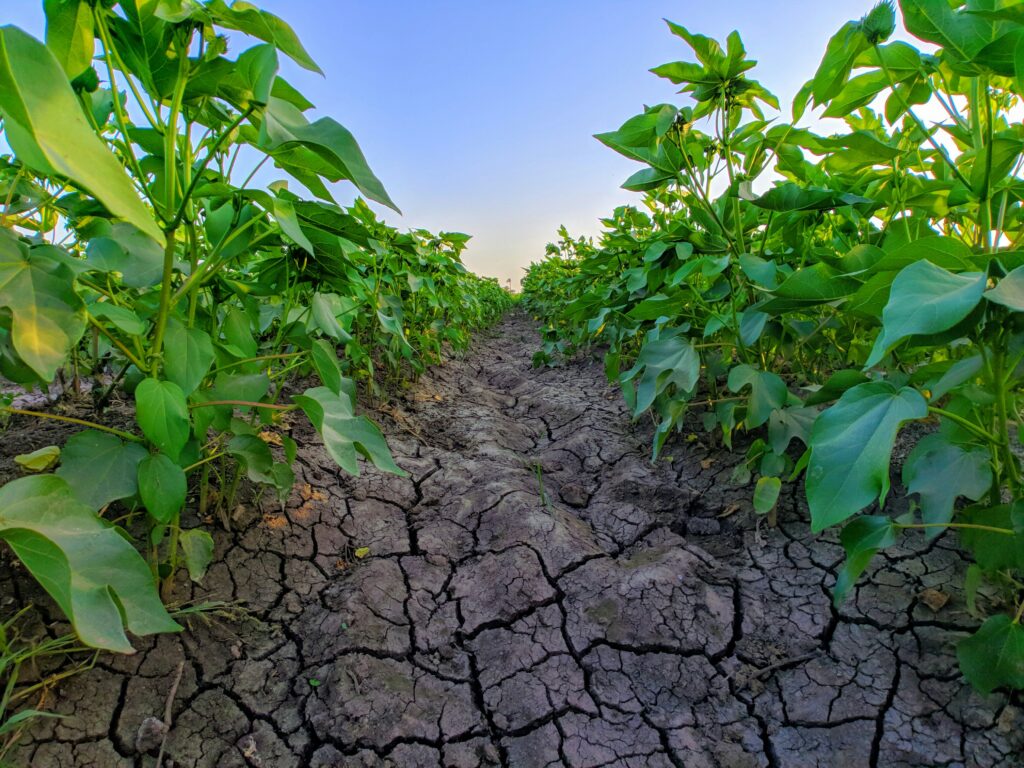The Role of Technology in Future Agriculture
Technology is set to transform agriculture in response to climate change. It supports solutions like precision farming and genetic engineering to enhance sustainability and productivity.
Precision Farming
Precision farming uses data and technology to optimize agricultural practices. By incorporating GPS, IoT sensors, and drones, farmers can monitor field conditions, manage resources, and reduce waste.
For example, GPS-enabled tractors can plant crops with exact spacing, ensuring efficient use of land. IoT sensors measure soil moisture, helping farmers automate irrigation systems to conserve water. Drones offer aerial views to identify crop health issues, allowing for timely interventions. Precision farming increases yields and minimizes environmental impact.
Genetic Engineering
Genetic engineering leverages biotechnology to develop crops that withstand climate challenges. Scientists manipulate the DNA of plants to enhance traits like:
- drought resistance
- pest resistance
- nutritional value
For instance, Bt cotton includes a gene from Bacillus thuringiensis, making it resistant to certain pests without chemical pesticides. Drought-tolerant crops, such as genetically modified maize, require less water, supporting farming in arid regions.
Golden Rice, modified to contain vitamin A, addresses nutritional deficiencies in developing countries. Genetic engineering promises crops that are more resilient and beneficial to human health.
Adapting Agricultural Practices to Climate Change
Adapting agricultural practices is crucial to mitigate the impacts of climate change. By embracing sustainable farming and innovative water management strategies, the sector can safeguard global food security.
Sustainable Farming Techniques
Sustainable farming techniques enhance productivity while minimizing environmental impact. Crop rotation and polyculture improve soil health and reduce pest outbreaks. For example, rotating legumes with grains enhances nitrogen levels in the soil, reducing the need for synthetic fertilizers.
Cover cropping prevents soil erosion and enhances soil fertility. By planting cover crops like clover during off-seasons, farms maintain ground cover to protect against erosion and retain soil nutrients. This method also enhances water retention in the soil, making it more resilient during dry periods.
Water Management Strategies

Effective water management strategies are vital for adapting to changing precipitation patterns. Drip irrigation systems conserve water by delivering it directly to plant roots, reducing evaporation losses. This method increases water use efficiency and supports crops during drought conditions.
Rainwater harvesting collects and stores rainwater for irrigation. Installing storage tanks and rain barrels allows farms to supplement water supply during dry periods, reducing dependence on local water sources. Implementing these practices ensures a stable water supply, even with irregular rainfall.
Climate-Resilient Crop Development
Ensuring crop survival under changing climate conditions is critical. Researchers focus on developing varieties that thrive despite challenges like drought and pests.
Drought-Resistant Crops
Drought-resistant crops play a vital role in maintaining productivity in dry conditions. Scientists identify and incorporate genes that enable plants to conserve water, utilize soil moisture more efficiently, and sustain growth during prolonged dry periods. For instance, crops like sorghum and pearl millet already exhibit natural resilience.
Genetic engineering and traditional breeding methods focus on enhancing these traits in other staple crops, such as maize and wheat. Field trials consistently show promising results; corn varieties developed to be drought-tolerant had 15% higher yields during droughts compared to conventional types.
Pest-Resistant Crops
Pest-resistant crops mitigate the impact of pests on food production. Integrating natural pest resistance through genetic traits reduces dependency on chemical pesticides, benefiting the environment. For example, Bt cotton, engineered to produce its own pest-repelling toxin, significantly lowers the need for external pesticide application.
Likewise, researchers are working on developing pest-resistant strains of crops like tomatoes and potatoes. Field studies reveal that genetically modified pest-resistant crops can yield up to 25% more than non-resistant varieties. This approach ensures a more stable food supply and reduces farmers’ costs linked to pest management.
Economic Implications for Farmers
Climate change brings economic challenges for farmers, demanding significant adaptations to sustain their livelihoods and ensure food production. Here’s an in-depth look at these economic implications.
Cost of Adaptation
Adapting to climate change necessitates substantial investments. Farmers face expenses for upgrading to new technologies, acquiring drought-resistant crops, and implementing sustainable practices. For example, precision farming equipment like GPS-guided tractors costs thousands of dollars but optimizes input usage and reduces waste.
Transitioning to crop rotation and polyculture, although beneficial, requires initial layout costs and ongoing management. These investments can strain financial resources, especially for small-scale farmers who have limited access to capital.
Market Stability
- Climate change affects agricultural markets and stability, leading to unpredictable yields and price volatility.
- Extreme weather conditions result in inconsistent produce supply, impacting market prices.
- A drought in a primary agricultural region reduces crop yields, driving up prices and creating scarcity.
- Farmers struggle to maintain stable incomes due to these fluctuations, complicating long-term financial planning and sustainability.
- Global trade disruptions stemming from climate impacts on food production further exacerbate market instability, leaving farmers vulnerable.
By understanding these economic implications, farmers can better navigate the complexities brought by climate change, paving the way for more resilient agricultural practices.
Government and Policy Initiatives
Governments play a pivotal role in shaping agricultural practices. Policies addressing climate change’s impact on agriculture are essential.
Support Programs for Farmers
Governments offer various support programs to assist farmers. Many countries provide subsidies and grants for adopting sustainable farming practices.
For instance, the USDA’s Environmental Quality Incentives Program (EQIP) offers financial and technical assistance to help farmers implement conservation practices on their land. In the European Union, the Common Agricultural Policy (CAP) funds farmers to adopt eco-friendly techniques and supports rural development.
Insurance programs also provide vital support. Crop insurance helps mitigate risks associated with unpredictable weather patterns. In India, the Pradhan Mantri Fasal Bima Yojana (PMFBY) protects farmers against crop loss due to natural disasters.
Training and extension services further aid farmers. Governments often facilitate workshops and resources on climate-smart agriculture practices to improve resilience and productivity. These programs ensure farmers have access to the latest research and technologies in sustainable agriculture.
International Collaboration
International collaboration enhances the effectiveness of climate action in agriculture. Entities like the Food and Agriculture Organization (FAO) promote global initiatives to combat climate change. They support projects that develop climate-resilient crops and sustainable water management practices.
Agreements like the Paris Agreement highlight the importance of multinational efforts. Signatory countries commit to reducing greenhouse gas emissions and supporting sustainable agriculture through national policies.
Initiatives like the Global Alliance for Climate-Smart Agriculture (GACSA) and the CGIAR Research Program on Climate Change, Agriculture, and Food Security (CCAFS) foster knowledge exchange and coordinate efforts to adapt agricultural practices to changing climates globally.



